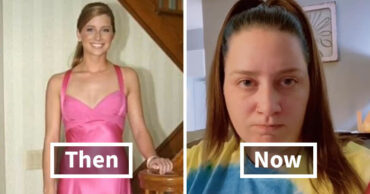Confessing your feelings to someone is always a gamble—you never really know how it’ll turn out. It could spark the beginning of something exciting, or it could end in heartbreak.
One man decided to take that risk with his friend of ten years. He told her he didn’t understand why she was with her boyfriend, since in his mind he was the better option—more attractive, taller, and more successful. But instead of falling for his pitch, she gave him an honest answer: she didn’t see him as good relationship material.
Her bluntness left him crushed, and soon their mutual friends were saying she had been too harsh. Unsure if she’d gone too far or simply told the truth, she turned to Reddit for advice.
The man told his friend of ten years that he couldn’t understand why she was with her boyfriend, since he believed he was clearly the better choice

Image credits: freepik (not the actual photo)
In response, she bluntly explained why she didn’t see him as relationship material, leaving him crushed
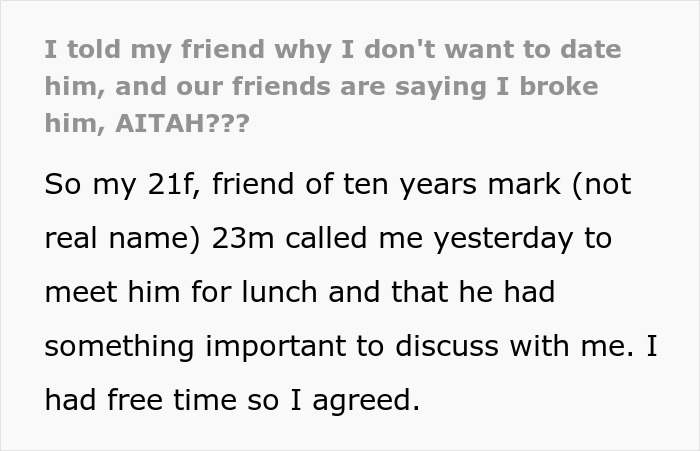
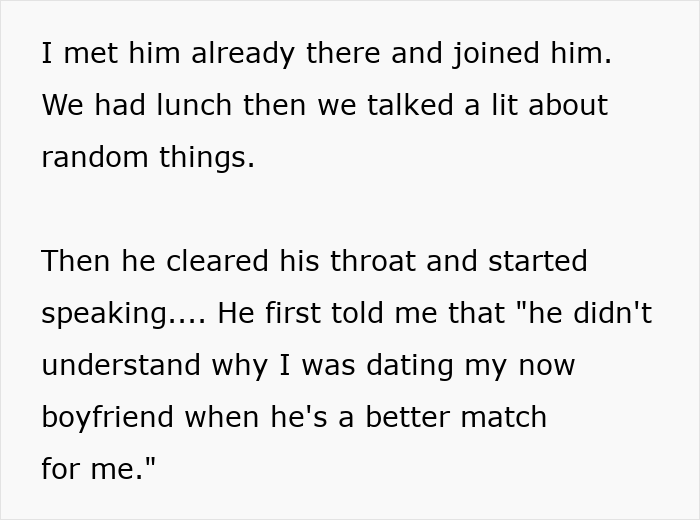
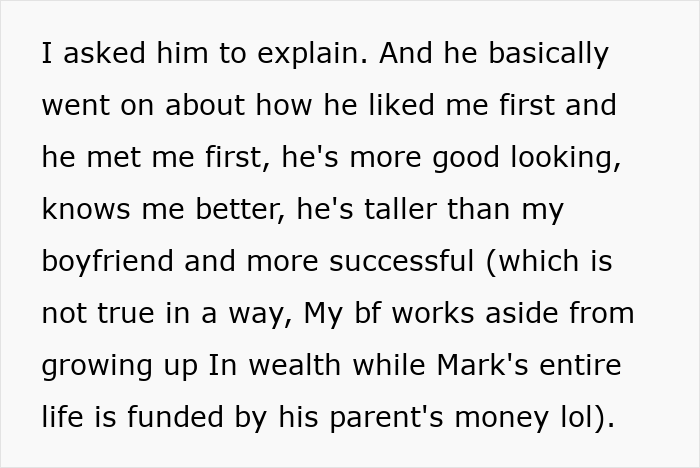
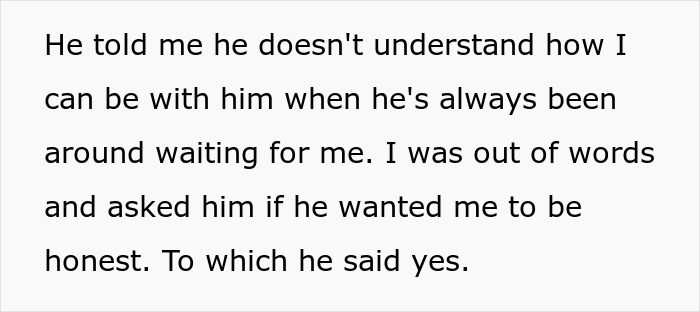
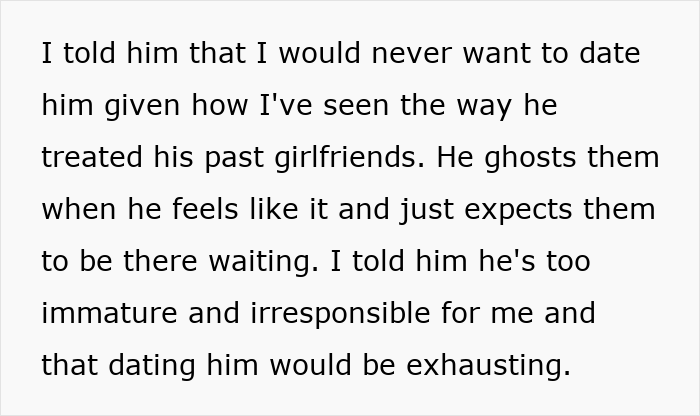
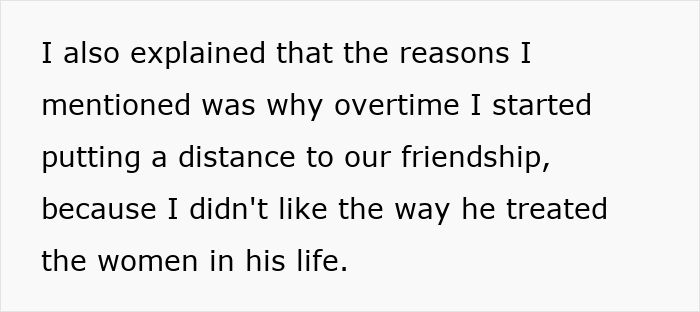

Image credits: pexels (not the actual photo)
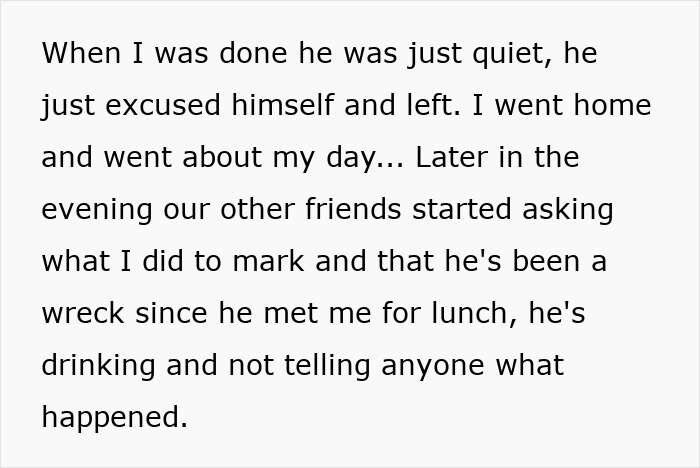
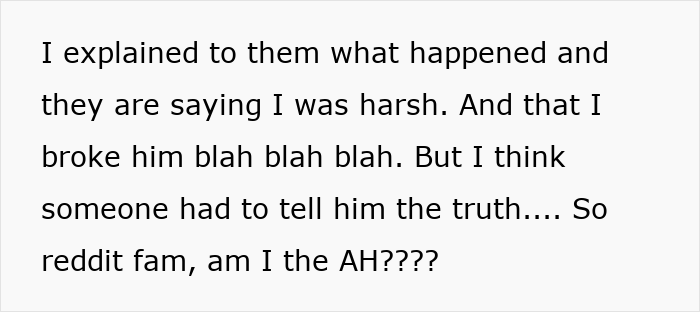
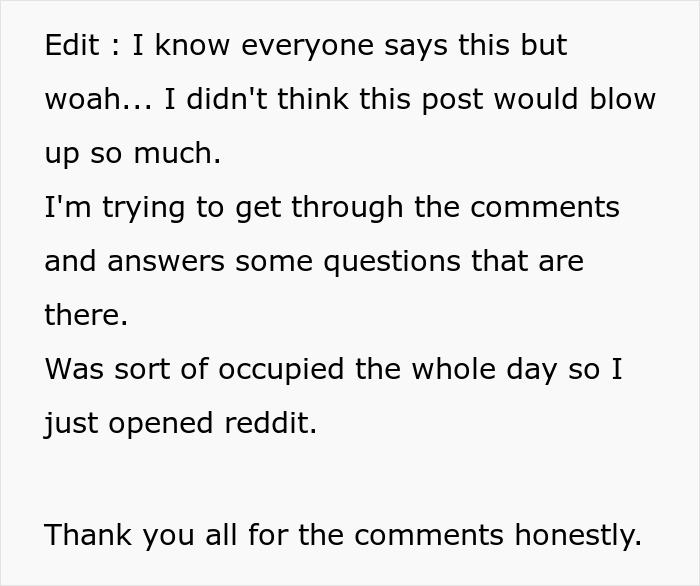
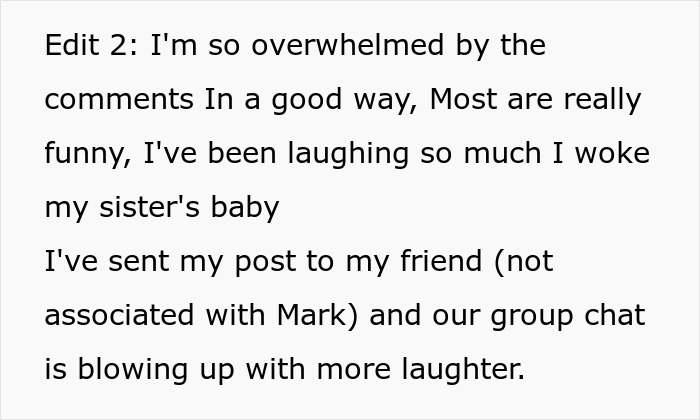
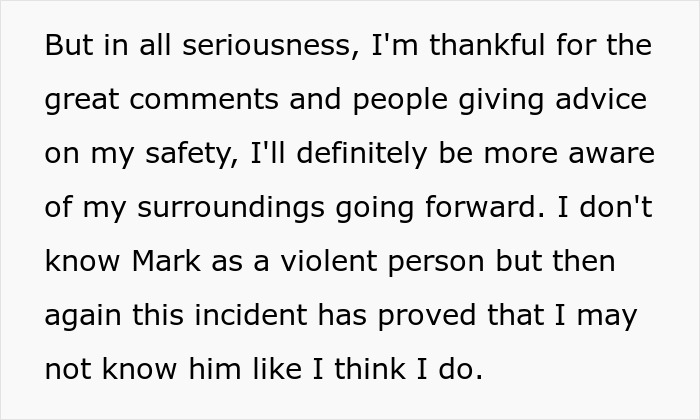
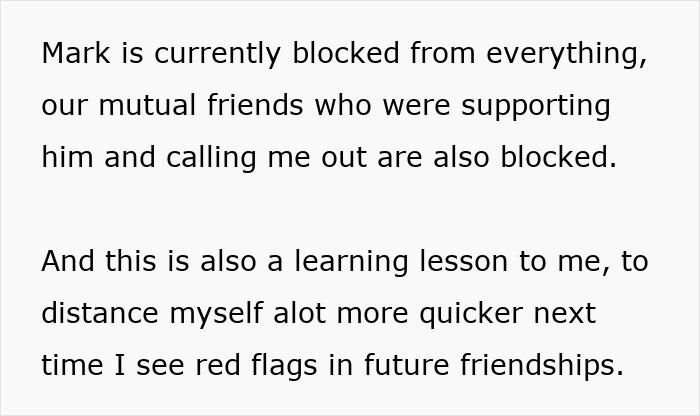
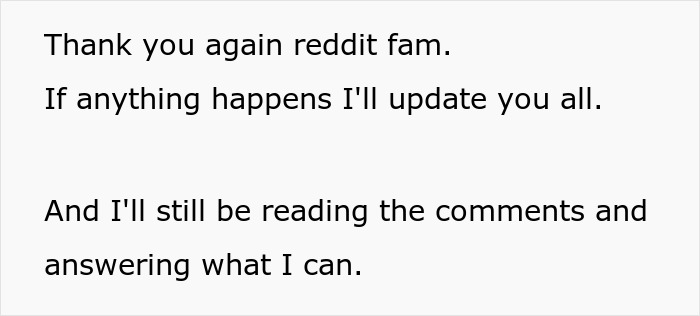
Image credits: bestiez_
What to do if your crush happens to be your friend, according to experts

Image credits: freepik (not the actual photo)
Oof. Catching feelings for a friend is one of the toughest spots you can land in. And let’s be honest, most of us have been there at some point.
Science even backs this up: about two-thirds of romantic relationships start as friendships, with many people not having romantic intentions at the beginning.
It makes sense when you think about it. We spend lots of time with our friends. We open up to them, they’re there through the highs and lows, and they become a constant source of support and joy. It’s no wonder those feelings sometimes deepen into something more.
But then comes the hard part: what do you actually do about it? Do you confess? Do you keep it to yourself? There’s no universal right or wrong here, but deciding can be agonizing.
One thing’s for sure, telling your friend you’re “way better” than their current boyfriend probably isn’t the best approach.
For actual guidance, experts in conversation with Verywell Mind shared their advice on how to handle it.
Step one: identify your true feelings.
Sometimes a crush is just a fleeting thing, and other times it grows into something meaningful. Before you make a big reveal, it’s worth asking whether this is temporary or the real deal.
Some questions to reflect on: Did you just come out of a breakup and might be confusing platonic comfort for romance? Do you enjoy their company like any other friend, or do you find yourself imagining intimacy? Paying attention to how your feelings evolve can save you heartache later.
According to Dr. Sabrina Romanoff, a clinical psychologist and professor at Yeshiva University, there are clear signs you’ve crossed from platonic to romantic feelings. These include:
But what if it’s just a simple attraction? Kristal DeSantis, CCTP, CSTIP, a licensed marriage and family therapist and author of STRONG: A Relationship Field Guide for the Modern Man, suggests asking yourself whether you truly want to be romantically involved, or if it’s simply physical.
“Neither is right or wrong, but it’s important to know how you feel and what you would hope for if the relationship were to change from friends to something more before talking to your friend about it,” she says.
If you confess and it goes well—congratulations. You’re starting an exciting new chapter, and because you’re already friends, you can openly discuss how to move forward together.
But if you get rejected, ouch. That’s painful, no doubt. Still, don’t blame yourself for speaking up. Being honest about your feelings is something to be proud of.
As DeSantis notes, reminding yourself that they can’t control who they’re attracted to can help you avoid taking rejection personally. Romanoff also suggests that part of healing might involve taking time and space away from your friend. Seeing them in group settings may be manageable, but one-on-one hangouts could sting for a while.
In the meantime, lean on other close friends, try meeting new people, or even speak with a therapist to process everything.
One day, you may feel ready to rebuild that friendship. But if right now it’s too painful, it’s okay to step back. Take pride in the fact that you were honest, both with yourself and with your friend. And remember: one rejection doesn’t define you. Healing takes time, but you will heal, and you’ll be okay.
Many readers agreed the author wasn’t at fault for how she responded


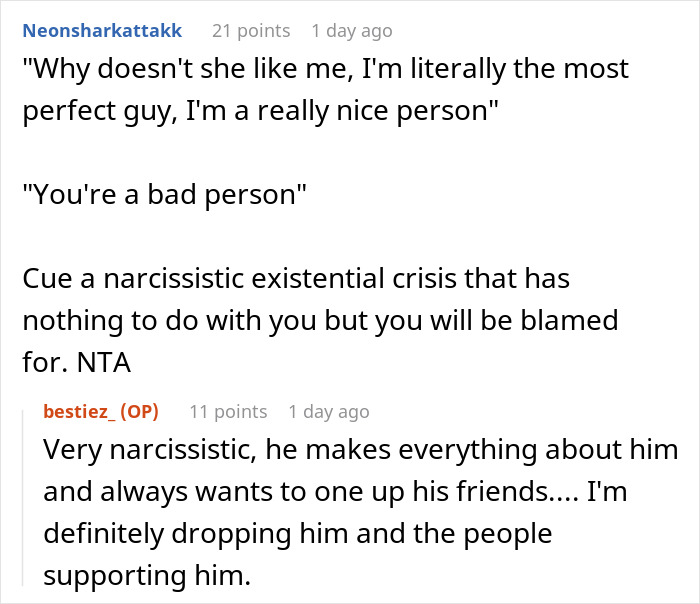
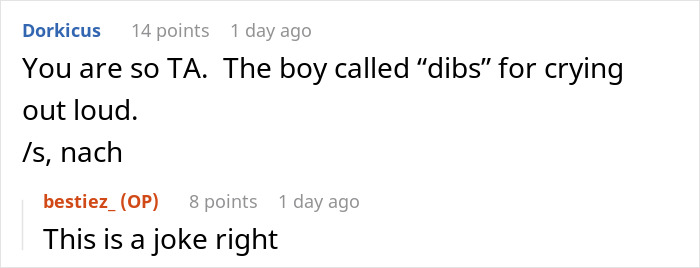
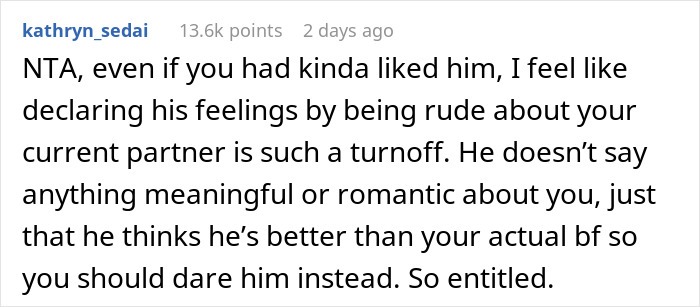
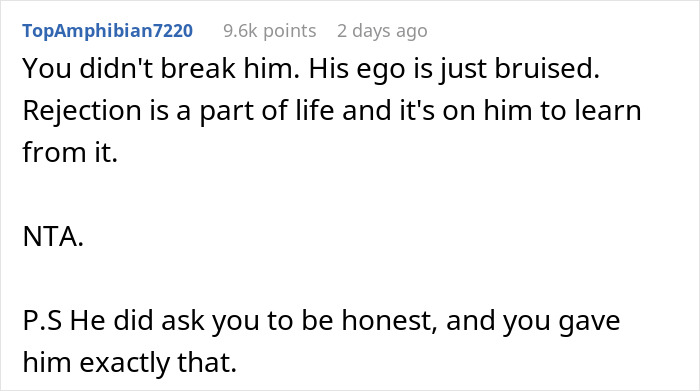
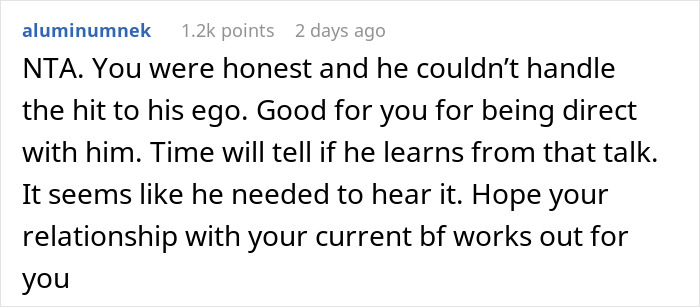
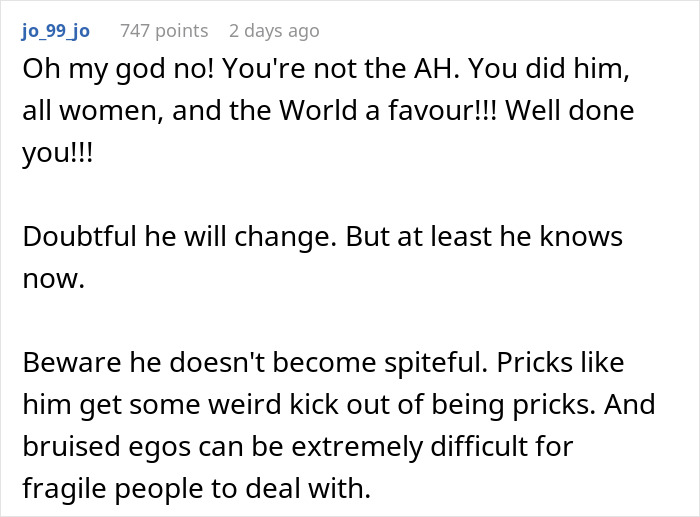
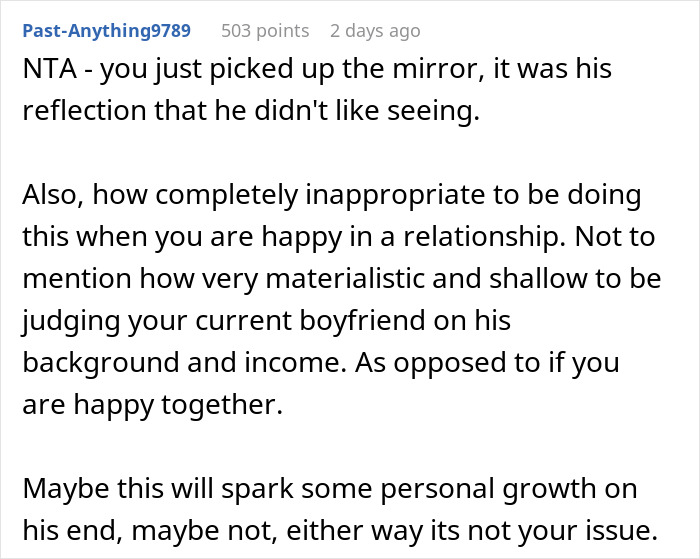
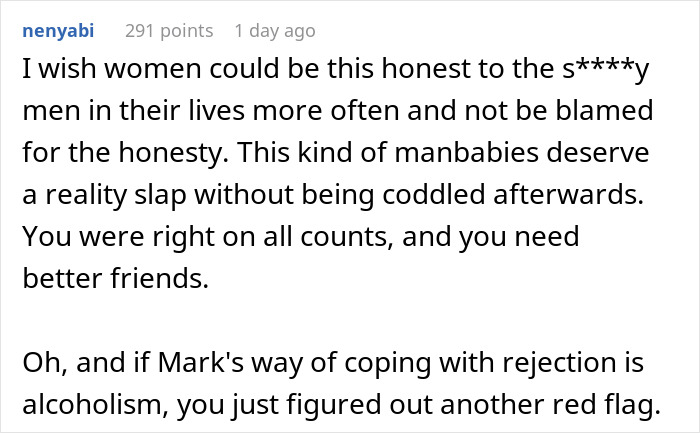

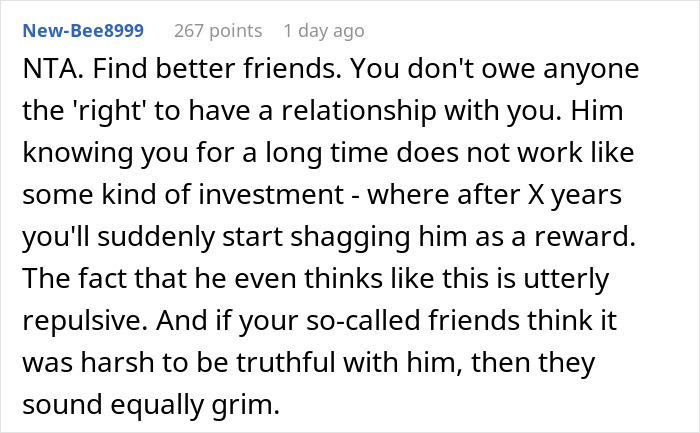

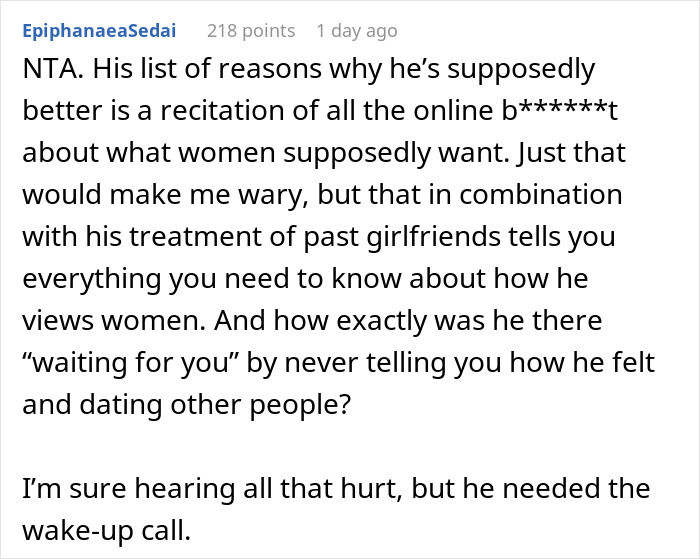
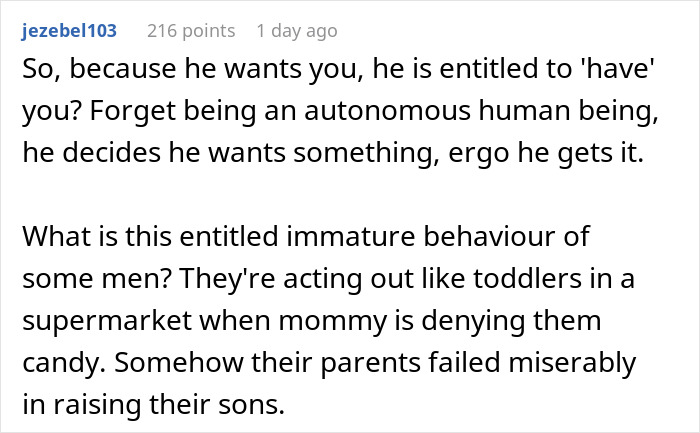
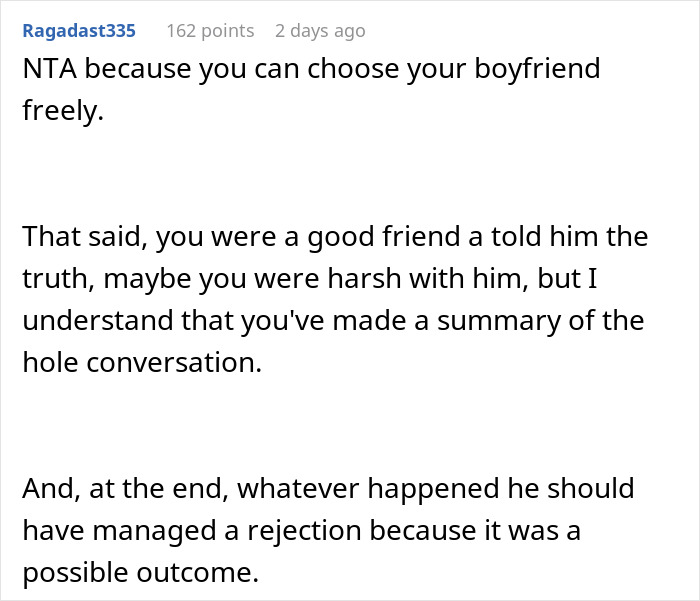

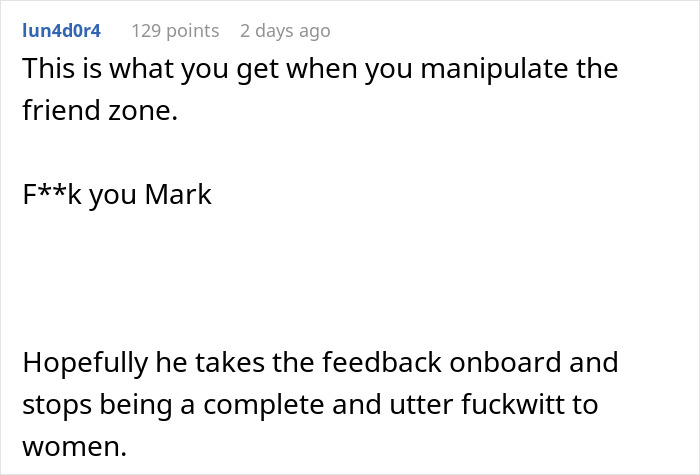
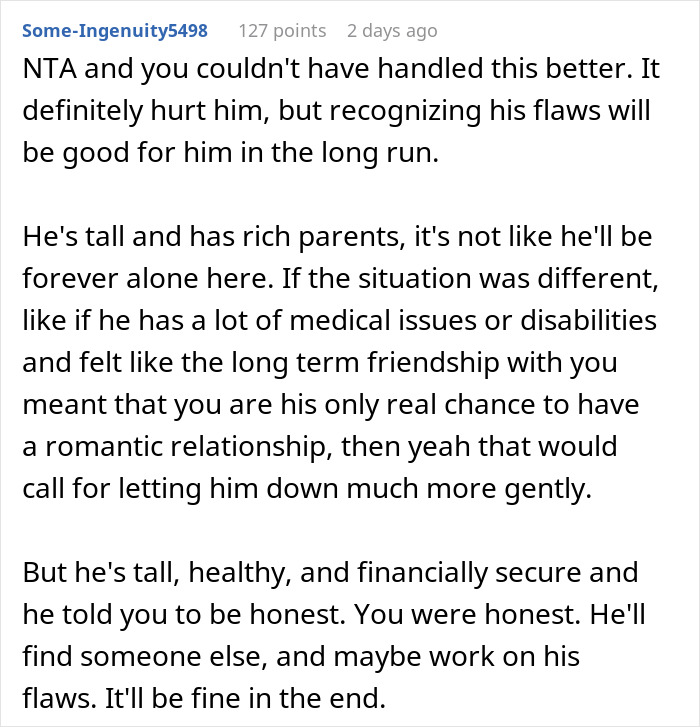
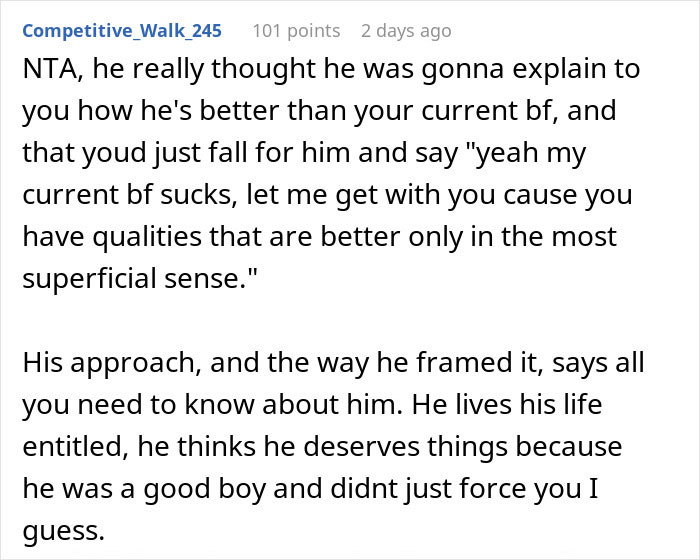
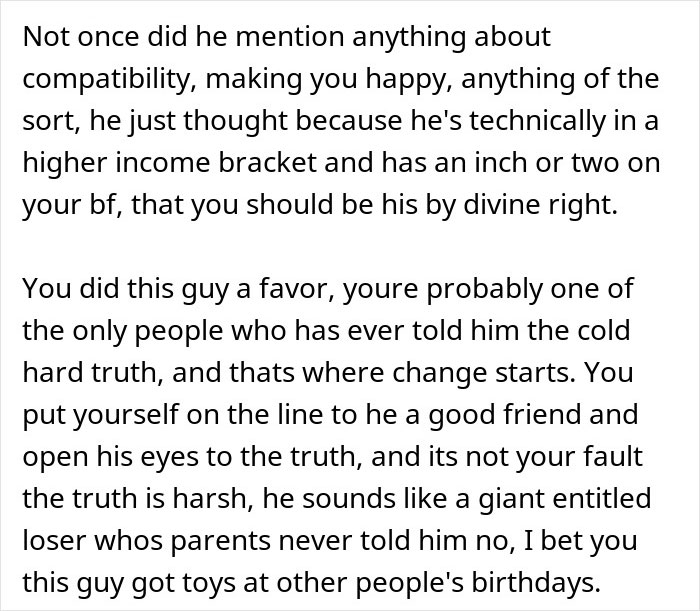
Others felt she could have handled it differently
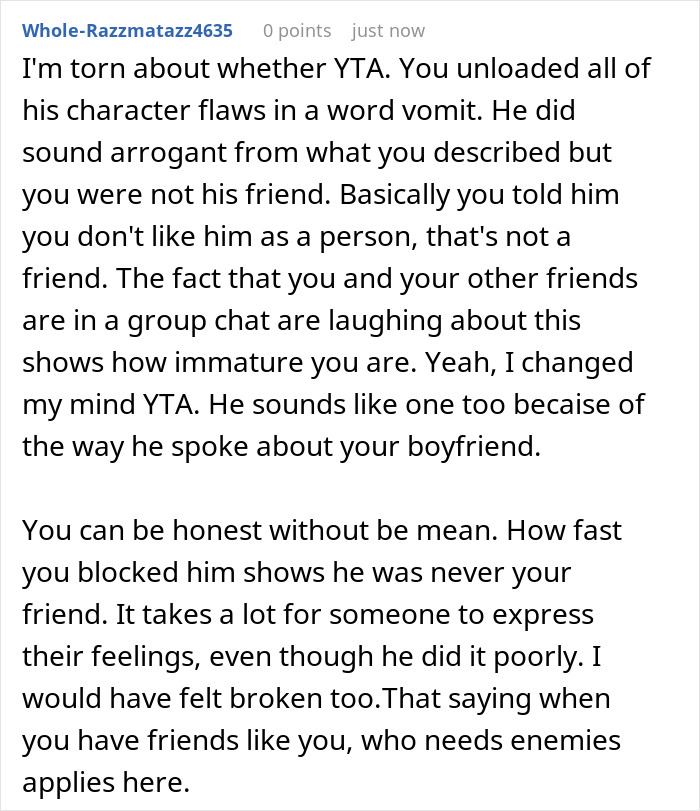
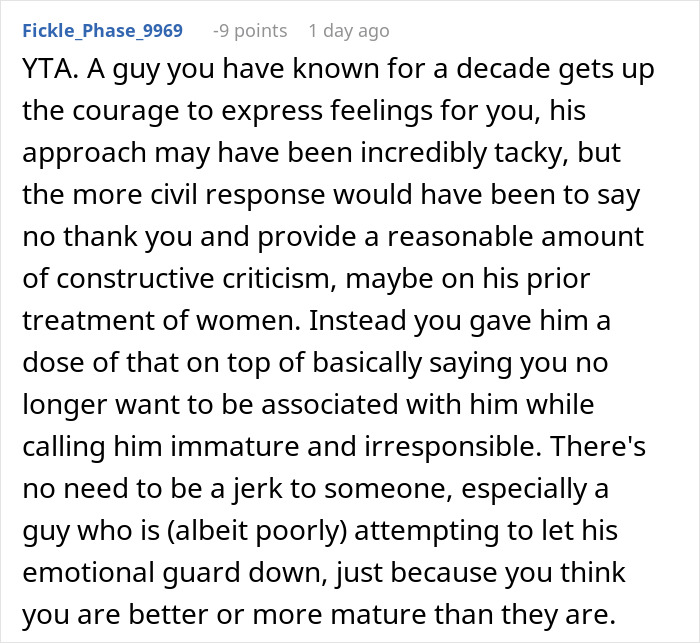
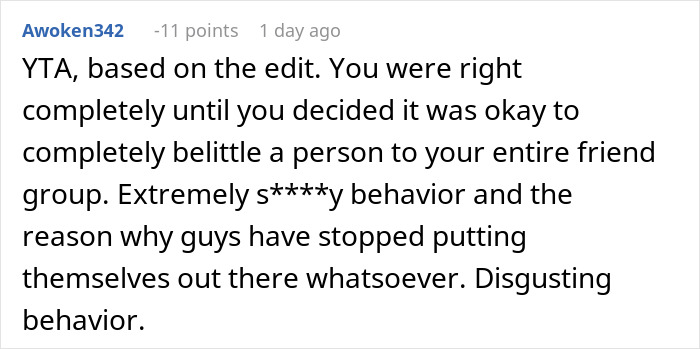
While some believed both shared the blame for the way things unfolded
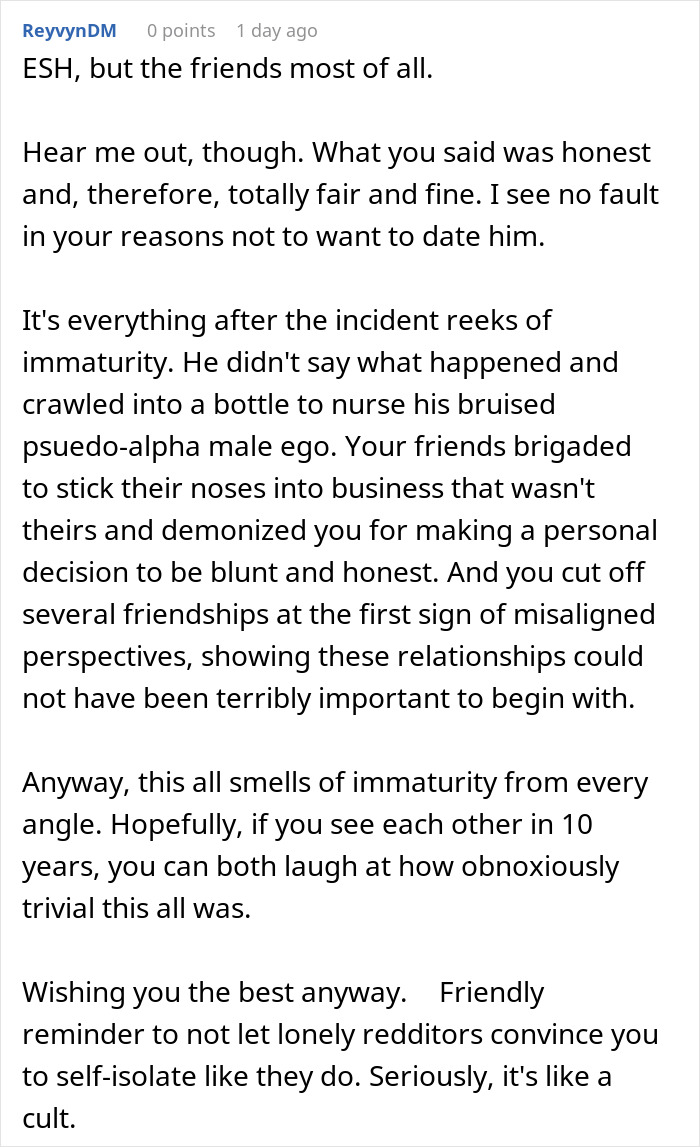

 Follow Us
Follow Us

